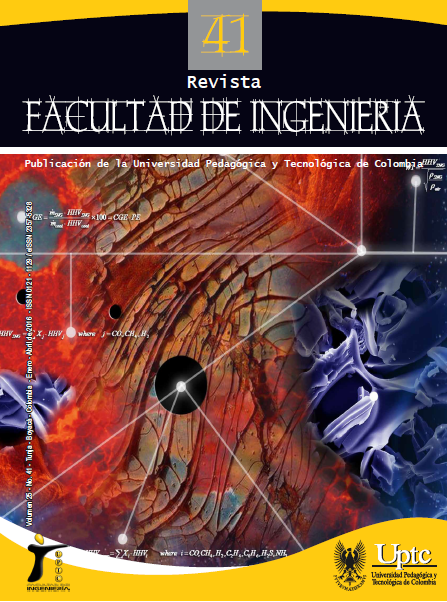Characterization of DLC/Si coatings under the influence of a simulated biological fluid

Abstract
One of the metals most used as biomaterial is the 316LVM steel. Nevertheless, it presents complications when used as permanent implant, due to the metallic ion release to the surrounding tissues, leading to higher number of interventions that the patients must undergo. Given this problem, it was studied how to improve the conventional materials coatings behavior that can raise their mechanical and anti-corrosive properties, increasing their service life. This behavior was evaluated facing the micro-abrasion-corrosion of DLC/Si, coatings phenomena, deposited by using the assisted chemical vapor deposition by plasma in contact with the Ringer solution, simulating a biological environment. The results indicate that the coating experiences an increase in the wear volume, when is subjected to the micro-abrasion-corrosion mechanism, in comparison with the micro-abrasion test. Moreover, the most significant loss is found in the substrate without coating, which demonstrates the protective effect of the coating.Keywords
coatings, micro-abrasion, biological fluid
References
- E. H. Mirza, S. F. Akbar y M. Asif, Evaluation of Anti-Corrosion Properties of DLC Coatings for Medical Devices. Kuala Lumpur, Malaysia: University of Malaya, Biomedical Engineering (ICoBE), 2012, International Conference. DOI: https://doi.org/10.1109/ICoBE.2012.6178967
- J. Sui, W. Cai, A. Liu, Z. Wang y L. Zhao, “Surface Characterization and Blood Compatibility of Diamond-Like Carbon (DLC) Films on the NiTi Alloys”, Materials Transactions, vol. 47, no. 3, pp. 691-693, 2006. DOI: http://dx.doi.org/10.2320/matertrans.47.691. DOI: https://doi.org/10.2320/matertrans.47.691
- Y. Fu, H. Du y Q. Sun, “Interfacial structure, residual stress and adhesion of diamond coatings deposited on titanium”, Thin Solid Films, vol. 424, pp. 107-114, 2003. DOI: http://dx.doi.org/10.1016/S0040-6090(02)00908-2. DOI: https://doi.org/10.1016/S0040-6090(02)00908-2
- J. Vetter, “60 years of DLC coatings: Historical highlights and technical review of cathodic arc processes to synthesize various DLC types, and their evolution for industrial applications”, Surface and Coatings Technology, vol. 257, pp. 213-240, 2014. DOI: http://dx.doi.org/10.1016/j.surfcoat.2014.08.017. DOI: https://doi.org/10.1016/j.surfcoat.2014.08.017
- D. Luo, V. Fridrici y P. Kapsa, “Relationships between the fretting wear behavior and the ball cratering resistance of solid lubricant coatings”, Surface and Coatings Technology, vol. 204, no. 8, pp. 1259-1269, 2010. DOI: http://dx.doi.org/10.1016/j.surfcoat.2009.10.019. DOI: https://doi.org/10.1016/j.surfcoat.2009.10.019
- K. Shiba, Y. Ohgoe, K. Hirakuri1, J. Mizuno, S. Shoji, K. Ozeki y K. Sato, Hemocompatibility of DLC coating for blood analysis devices, Tokyo, Japan: School of Engineering and Graduate School of Engineering, Tokyo Denki University, Electronics Packaging (ICEP), 2014 International Conference. DOI: https://doi.org/10.1109/ICEP.2014.6826781
- A. Gant, M. Gee y A. May, “Microabrasion of WC–Co hardmetals in corrosive media”, Wear, vol. 256, no. 9-10, pp. 954-962, 2004. DOI: http://dx.doi.org/10.1016/j.wear.2003.09.003. DOI: https://doi.org/10.1016/j.wear.2003.09.003
- L. Yang, A. Neville, A. Brown, P. Ransom y A. Morina, “Friction reduction mechanisms in boundary lubricated W-doped DLC coatings”, Tribology International, vol. 70, pp. 26- 33, 2014. DOI: http://dx.doi.org/10.1016/j.triboint.2013.09.020. DOI: https://doi.org/10.1016/j.triboint.2013.09.020
- L. Bonetti, G. Capote, L. Santos y E. Corat, “Adhesion studies of diamond – like carbon films deposited on Ti6Al4V substrate with a silicon interlayer”, Thin Solid Films, vol. 515, no. 1, pp. 375-379, 2006. DOI: http://dx.doi.org/10.1016/j.tsf.2005.12.154. DOI: https://doi.org/10.1016/j.tsf.2005.12.154
- W. Aperador, G. Roa-Rodríguez y A. Mejía, “Characterization and Corrosion Behavior of Multilayer [TiAlN]nGrowthon AISI 316LVM Steel”, Int. J. Electrochem. Sci., vol. 9, pp. 5025-5034, 2014. DOI: https://doi.org/10.4028/www.scientific.net/AMM.598.13
- K. Lukaszkowicz, J. Sondor y K. Balin, “Characteristics of CrAlSiN + DLC coating deposited by lateral rotating cathode arc PVD and PACVD process”, Applied Surface Science, vol. 312, pp. 126-133, 2014. DOI: http://dx.doi.org/10.1016/j.apsusc.2014.03.024. DOI: https://doi.org/10.1016/j.apsusc.2014.03.024
- C. Martins, J. Moreira y J. Martins, “Corrosion in water supply pipe stainless steel 304 and a supply line of helium in stainless steel 316”, Engineering Failure Analysis, vol. 39, pp. 65-71, 2014. DOI: http://dx.doi.org/10.1016/j.engfailanal.2014.01.017. DOI: https://doi.org/10.1016/j.engfailanal.2014.01.017
- W. Aperador, G. Rodríguez y F. Franco, “Comportamiento de la corrosión de aleaciones de magnesio AZ31-B en ambiente marino, modificadas por el proceso de fricciónagitación”, Rev. chil. ing., vol. 20, no. 1, pp. 119-125, 2012. DOI: https://doi.org/10.4067/S0718-33052012000100012
- V. Muthukumaran y V. Selladurai, “Experimental Evaluaton of Corrosion and Hardness on AISI 316L Stainless Steel Implanted with Nitrogen and Argon Ions”, Acta Mechanica Slovaca, vol. 14, no. 1, pp. 80-87, 2010. DOI: http://dx.doi.org/10.2478/v10147-011-0011-2. DOI: https://doi.org/10.2478/v10147-011-0011-2
- D. Sun, J. Wharton, R.J.K. Wood, L. Ma y W.M. Rainforth, “Microabrasion-corrosion of cast CoCrMo alloy in simulated body fluids”, vol. 42, no. 1, pp. 99-110, 2009. DOI: https://doi.org/10.1016/j.triboint.2008.05.005
- C. Chandrasatheesh, J. Jayapriya, R. George y U. K. Mudali, “Detection and analysis of microbiologically influenced corrosion of 316L stainless steel with electrochemical noise technique”, Engineering Failure Analysis, vol. 42, pp. 133-142, 2014. DOI: http://dx.doi.org/10.1016/j.engfailanal.2014.04.002. DOI: https://doi.org/10.1016/j.engfailanal.2014.04.002
- G. Zambrano, H. Riascos y P. Prieto, “Multicapas de metal-cerámico-carbono tipo diamante (DLC): un camino para la obtención de recubrimientos superduros”, Rev. Acad. Colomb. Cienc., vol. 27, no. 103, pp. 225-231, 2003.
- Y. Liua, D. Biana, Y. Wub, N. Li, K. Qiuc y Y. Zhenga, “Influence of biocompatible metal ions (Ag, Fe, Y) on the surface chemistry, corrosion behavior and cytocompatibility of Mg–1Ca alloy treated with MEVVA”, Colloids Surf B: Biointerfaces, pp. 99-107, 2015. DOI: http://dx.doi.org/10.1016/j.colsurfb.2015.05.050. DOI: https://doi.org/10.1016/j.colsurfb.2015.05.050